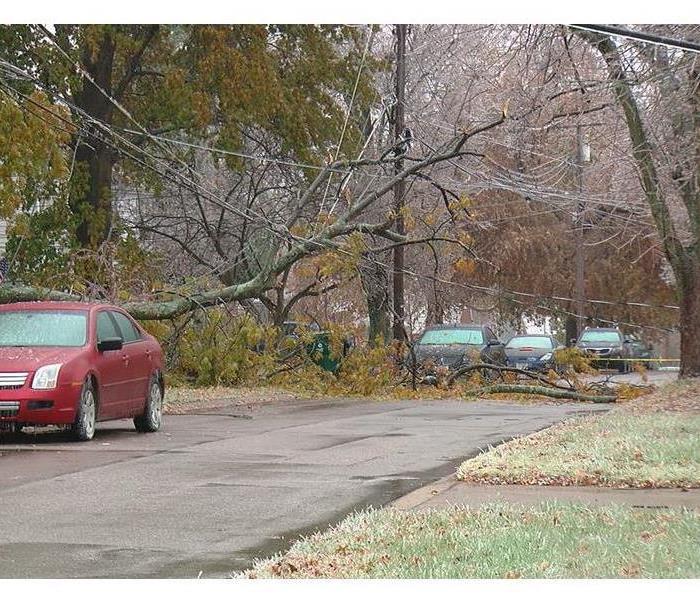Be safe during storms with these helpful tips!
10/17/2019 (Permalink)
Be Prepared
When a severe storm is approaching, tune into a local TV or radio broadcast covering the storm and follow evacuation orders, if they are issued. Check your emergency supplies and make sure you have enough water for everyone in your home, typically 1 gallon of water per person, per day for at least 3 days. Fill up your bathtubs with clean water. Turn your refrigerator and freezer up to the maximum setting so your food will stay cold for as long as possible in the event of a power outage. If you have storm shutters on your windows, make sure they are closed and secured. If not you can use pre-cut plywood to cover exposed glass. To prevent damage from flying objects, bring outdoor furniture, tools, pots and toys in from outside. Secure important documents, photographs and other valuables in a waterproof and fireproof case.
Power Outage
During an outage, Safe Electricity recommends turning off electrical appliances and unplugging major electronics, including computers and televisions. Power sometimes comes back in surges, which can damage electronics. Your circuits could overload when power returns if all your electrical items are on. Leave one light on to indicate that power is back on. Wait a few minutes and then turn on other appliances and equipment—one at a time.
If you use a standby generator, take proper safety precautions. Always read and follow all manufacturer operating instructions. There should be nothing plugged into the generator when you turn it on. This prevents a surge from damaging your generator and appliances. Operate generators in well-ventilated, outdoor, dry areas. Never attach a temporary generator to a circuit breaker, fuse, or outlet; plug items into the generator once it’s operating.
Permanent generators should be wired into a house by a qualified electrician and include a transfer switch to prevent feeding electricity back into overhead lines, which can be deadly for linemen.
To help you get through, have a storm kit prepared. Keep the kit in a cool, dry place, and make sure all members of the family know where it is.





 24/7 Emergency Service
24/7 Emergency Service
